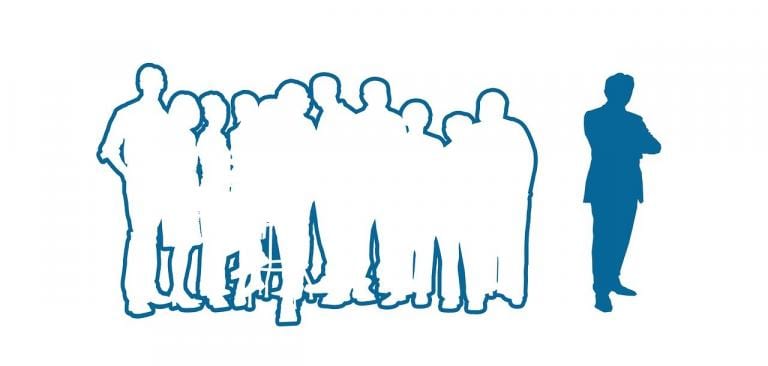Our point then is that leftwing critical theory champions “the Other,” which the “privileged” groups “marginalize” and then oppress. Intersectionality “celebrates otherness,” and critical scholarship seeks to moved the marginalized into the center. But evangelicals are “other” to them, so they are not getting this treatment.
Today and tomorrow I’d like to reflect upon why evangelicals–which includes a whole range of conservative Protestants–are now looked upon with such “repugnance.” Evangelicals used to be the pinnacle of respectability. What happened?
First of all, serious Christians of all stripes need to realize that, however much they want to be liked, Jesus promises that they will be hated. In the last days, says Jesus, “ you will be hated by all nations for my name’s sake. And then many will fall away and betray one another and hate one another” (Matthew 24:9-10). Not only will the world hate Christians, He is saying, Christians will hate each other! And many Christians will leave the faith because they don’t want to be hated.
The Gospel of John explains why the world will hate Christians: “If the world hates you, know that it has hated me before it hated you. If you were of the world, the world would love you as its own; but because you are not of the world, but I chose you out of the world, therefore the world hates you” (John 15:18-19).
So emulating Jesus will bring down the world’s hatred. By the nature of their faith, Christians will be “other.” This is part of the answer, but I don’t think it is the whole explanation.
To be sure, Evangelicals and other conservative Christians abominate abortion, disapprove of homosexuality, and are skeptical about transgenderism. This at a time when what Hunter calls the Social Elite consider approval of abortion, homosexuality, and transgenderism to be the hallmarks of moral purity. So this would be an example of Christians being disapproved of for being faithful to their beliefs.
But Muslims also have problems with these shibboleths, and yet they are part of the intersectional web of approval. Catholics are also pro-life, and while anti-Catholicism is certainly a strain in leftwing thinking, the aversion to Catholics–many of whom are also politically liberal–does not seem to be as great as for conservative Protestants.
We are often despised not so much for following Jesus, but for NOT following Jesus, though we say we do. What I’ve heard is accusations that Evangelicals do not really believe what they say they believe. “They aren’t really pro-life. Look at how they treat children of immigrants.” “They don’t really care about sexual morality. Look at all of their sex scandals.” “They aren’t really pro-family. Look at their divorce rate.” “Bunch of hypocrites!”
Most Americans claim to be Christians, but that doesn’t prevent them from “othering” Evangelicals. Indeed, Evangelicals’ theological beliefs about Jesus, salvation, the Bible, and overall supernatural worldview are shared by the Black church, which is still highly acceptable to the Social Elite. Arguably, Black Christians might be uncritically aligned with left wing politics, to the point sometimes of contradiction, just as white Evangelicals might be uncritically aligned with right wing politics, to the point sometimes of contradiction.
Which gets us to perhaps the major reason why Evangelicals, who have been pro-life and pro-sexual morality for a long time, are just now the targets of so much backlash: politics.
But that too is more complicated than it appears.
[To Be Continued Tomorrow. . .]
Image by Gerd Altmann from Pixabay














